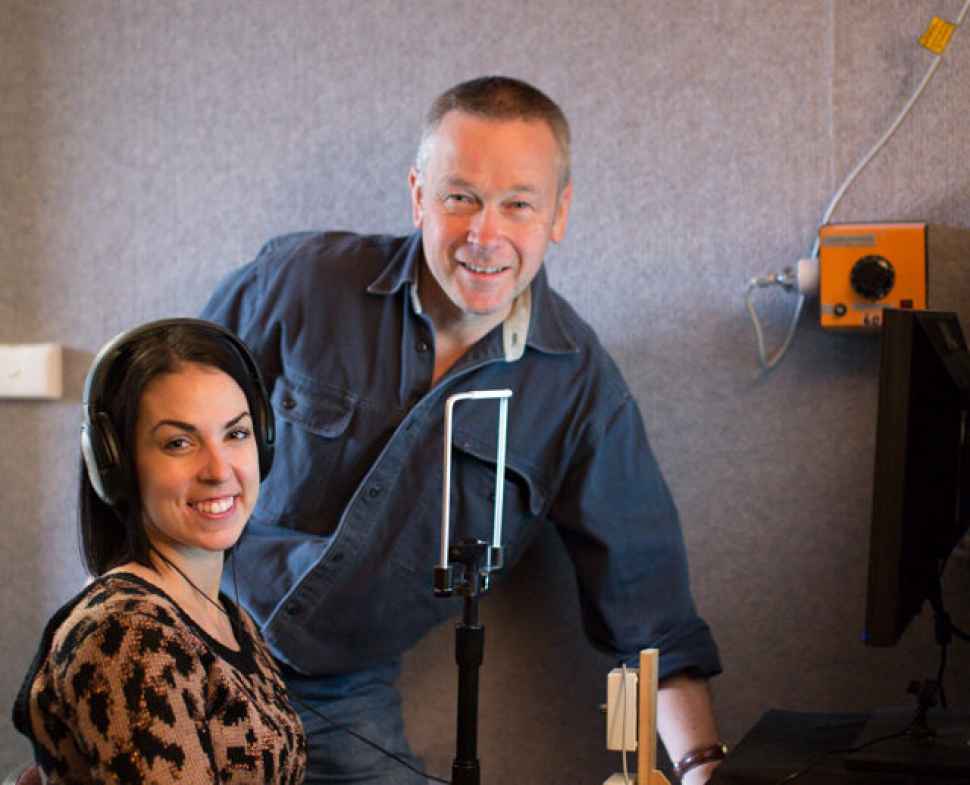Bending minds
Qualifying as a plumber out of high school, Professor Nicholls had no interest in further education until the call of university life and the fun being had by his mates encouraged him to enrol in architecture.
A chance encounter with the field of psychology revealed a passion for the field and led him to a PhD at Cambridge. He has devoted more than 20 years to his field, attracting like-minded PhD and early research fellows from across the world to his lab.
One such researcher is Nicole Thomas, who was convinced the Nicholls lab was the place for her post-doctoral work.
After completing her PhD, Dr Thomas received a research grant from the Canadian Government that brought her to Adelaide.
Professor Nicholls and Dr Thomas are working on an ARC grant project beginning in 2016 that looks at the difference in attentional capacities between the two sides of the brain.
The study is important to understand key factors that affect our ability to pay attention when walking or operating a vehicle both for healthy adults as well as the elderly or those who have experienced strokes or losses of brain function.
“The human brain is capable of attending to incredible amounts of information and helps us move around our environment safely, but in some circumstances this ability is impaired, which can result in collisions,” Professor Nicholls said.
“This study looks to identify the factors that exacerbate lapses in attention and collisions as well as ways to minimise these attentional lapses and improve safety.
“We want to understand how differences between the two sides of the brain in their capacity for attention affect how we interact with our environment. The impact of everyday distractions such as mobile phones will be investigated, as well as how we can improve our attentional capacity.”



